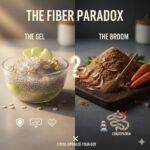 Remember back in March 2020, when the politicians told us the initial lockdown would take “Just two weeks to flatten the curve?” Well, we all know that turned into more weeks, then months, and then letting up, and then locking down again, much like a conditioning schedule in an experimental lab.
Remember back in March 2020, when the politicians told us the initial lockdown would take “Just two weeks to flatten the curve?” Well, we all know that turned into more weeks, then months, and then letting up, and then locking down again, much like a conditioning schedule in an experimental lab.When the information was broken out by generation, the results revealed that of those surveyed who reported an undesired weight change, 48% of Millennials gained 41 pounds on average. Baby Boomers, by contrast, gained only 16 pounds (which is still astonishing).
What most people don’t realize is the cost of being trapped in a fear state. If someone watches CNN all day (or any other MSM station – even including Fox), they are going to have a level of fear that changes their hormones in such a way that fat loss is more difficult and fat gain is much easier.
Besides hormones, habits change too. Being disrupted from our normal schedule and activities also causes stress, which pushes us more toward seeking comfort. This comfort is found, albeit short term, in the form of food (especially carbs because of the short term dopamine effect on the brain), and “laziness” as we tend to make ourselves comfortable on the couch, in front of the TV, to soothe the noise and stress we are feeling from the outside world. Then if MSM is on TV, it actually increases the fear and stress, even though we think we are soothing it with our new sedentary habits and comfort foods.
Millennials are more suspectable to stress and fear than the more mature boomers, which is why they gained three times the amount of weight. It’s serious too. Millennial suicides skyrocketed, causing exponentially more deaths than COVID among that population.
So what’s the solution? Here are my top 7 suggestions:
- STOP WATCHING MSM!!!!! All news stations have one main goal: To put you in a fear state so you buy from their advertisers. When were are in a fear state, we are trapped in our amygdala which makes emotional decisions (the perfect “buy” state). Being stuck in the amygdala pulls us out of our prefrontal cortex (PFC) which is the part of the brain where willpower is found, and also helps us make rational decisions (like NOT buying crap we don’t need, making healthy food choices, exercising, etc.)
- Exercise. We all know how important this is for our immune system, so that’s enough reason right there, but it’s also the most effective stress buster thing we can do – especially when it’s intense, like X Gym style.
- Hydrate. When your body is getting enough of its # 1 ingredient (water), it can run properly, for immune purposes, metabolism purposes, and more, which prevents the massive physiological stress of being dehydrated (which 80% of people are). This takes the stress level way down, plus makes you healthier, leaner, and fitter.
- Eat food from hardbodcafe.com. Junk food and processed food might make your brain feel better in the short term, but crashes you lower than the starting point within an hour or less, which tends to start that downward spiral snowball. Making real food – especially fat-burning foods and recipes – creates an upward spiral resulting in better health and a happier brain, with less stress, both physiologically and psychologically.
- Take the brain type test. This will reveal your unique brain type, along with your custom brain training techniques to unlock your superpowers for stress reduction, better health, fitness, and more.
- Practice gratitude (especially combined with love). When you are experiencing gratitude, you are shifting your brain’s energy to the PFC. Regular practice even grows more grey matter! When you are focusing on gratitude for someone you love, or who loves you, the amygdala is actually deactivated during those thoughts, so if you want to get into your PFC fast, and turn off the fear-based amygdala, this is an extremely fast and powerful hack.
- Meditate. Some people get intimidated with this word, thinking it’s a skill they have to build or master, but it’s actually quite simple. It just means choosing to on something. It can be your breath, a candle flame, a dot on the ceiling, or even the sounds around you, which some people call mindfulness. When you focus and concentrate, preferably on something pleasant or positive (or at worst neutral – just not negative or fearful), you give your PFC a workout like a muscle, which makes it stronger. As it becomes stronger, your ability to focus improves, along with your ability to get out of your amygdala. Most importantly, for these purposes, it’s a shortcut out of stress and even depression, and into a great state of mind where you are in control of how you feel about things. Even just 10 minutes a day can completely rewire your mind and reactions to stress. You get to choose, instead of being controlled by your world and merely reacting to it as those who are trapped in their amygdala and don’ know how to get out!
Chip away at this list and see if you can make some progress each day. If you do, I promise you will stop the weight gain and then reverse it, no matter what your age group.
Strive for progress, not perfection. And remember that you’ll have off days where you go backward too – and that’s OK – It’s human. Just brush yourself off, leave it behind you, and start moving forward again.
Progress, not perfection…









